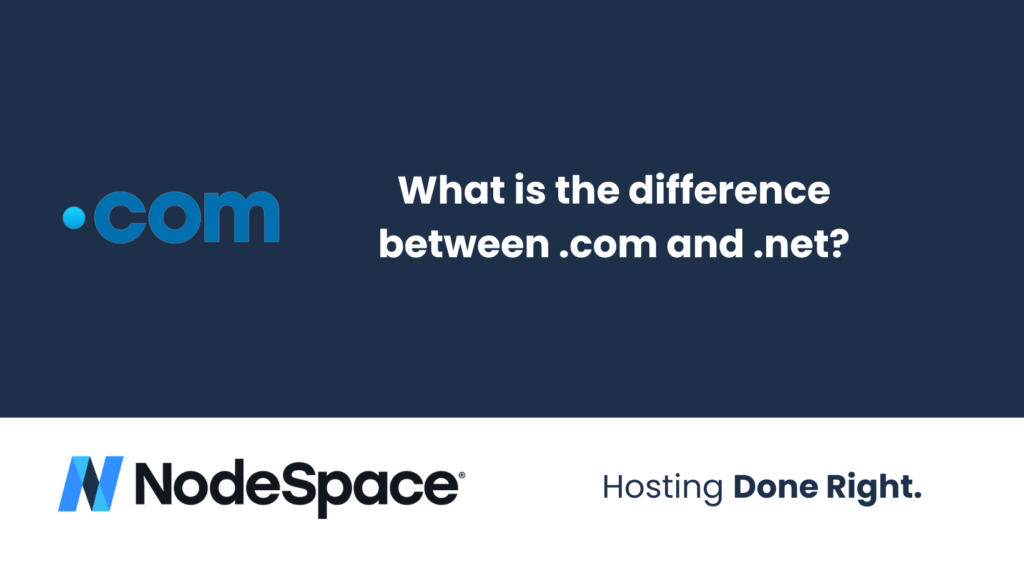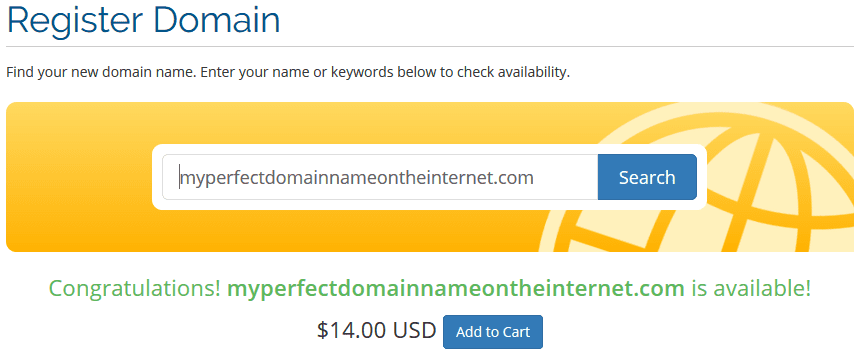If you are planning to create a website, one of the decisions you have to make is choosing a domain name and a domain extension. A domain name is the unique identifier of your website on the internet, such as google.com or forbes.com. A domain extension is the part that comes after the dot, such as .com, .net, .org, and so on.
There are hundreds of domain extensions available today, but the most popular and widely used ones are .com and .net. In this blog post, we will explain the difference between these two extensions and help you decide which one you should choose for your website.
What is .com?
The .com extension is short for “commercial” and was originally intended to be used by for-profit businesses and organizations. It is the most widely used and accepted domain name extension today, and it is often associated with credibility, trustworthiness, and professionalism.
According to Google, nearly 50% of the websites they visit use the .com extension [1]. Some of the most popular websites in the world, such as Google.com, YouTube.com, Facebook.com, and Amazon.com, use the .com extension.
The advantages of choosing a .com extension are:
- It is easy to remember and type
- It is widely recognized and trusted by users
- It can help you rank higher in search engines
- It can increase your brand awareness and visibility
The disadvantages of choosing a .com extension are:
- It is very competitive and hard to find an available name
- It can be expensive to register or buy from a third-party seller
- It can be confusing if your website is not commercial or related to your name
What is .net?
The .net extension is short for “network” and was originally used for networking technologies in the earlier days of the internet. When .com names became very competitive, the .net extension was adopted by many businesses as the next best alternative to get the exact name they wanted.
The .net extension is also popular among tech-related businesses, such as internet, email, and database service providers. Some examples of websites that use the .net extension are Slideshare.net, Battle.net, and Behance.net.
The advantages of choosing a .net extension are:
- It is less competitive and easier to find an available name
- It is cheaper to register or buy from a third-party seller
- It can show that your website is tech-oriented or network-related
The disadvantages of choosing a .net extension are:
- It is less memorable and recognizable than .com
- It can be mistaken for a .com website by users
- It can lower your ranking in search engines if your website is not relevant to your name
Which one should you choose?
There is no definitive answer to which domain extension you should choose for your website. It depends on your goals, budget, audience, and availability. However, here are some general guidelines to help you make a decision:
- If your website is commercial or related to your brand name, choose a .com extension if possible. It will give you more credibility, trustworthiness, and visibility online.
- If your website is tech-oriented or network-related, choose a .net extension if you want to emphasize that aspect. It will show that you are an expert in your field and attract more tech-savvy users.
- If your website is non-profit or educational, choose a .org extension if you want to show that you are not motivated by profit. It will convey a sense of social responsibility and altruism.
- If your website is specific to a country or region, choose a country-specific extension if you want to target local users. It will help you rank higher in local search engines and increase your relevance.
Where can you get a domain name?
There are many websites where you can register or buy a domain name with any extension you want. Some of the most popular ones are Namecheap, Namesilo, and of course right here at NodeSpace. You can compare their prices, features, and customer reviews before choosing one.
Bottom line
Choosing a domain name and a domain extension is an important step in creating a successful website. You should consider your goals, budget, audience, and availability before making a decision. The most popular extensions are .com and .net, but there are many other options available. You should pick the one that best suits your needs and preferences.



